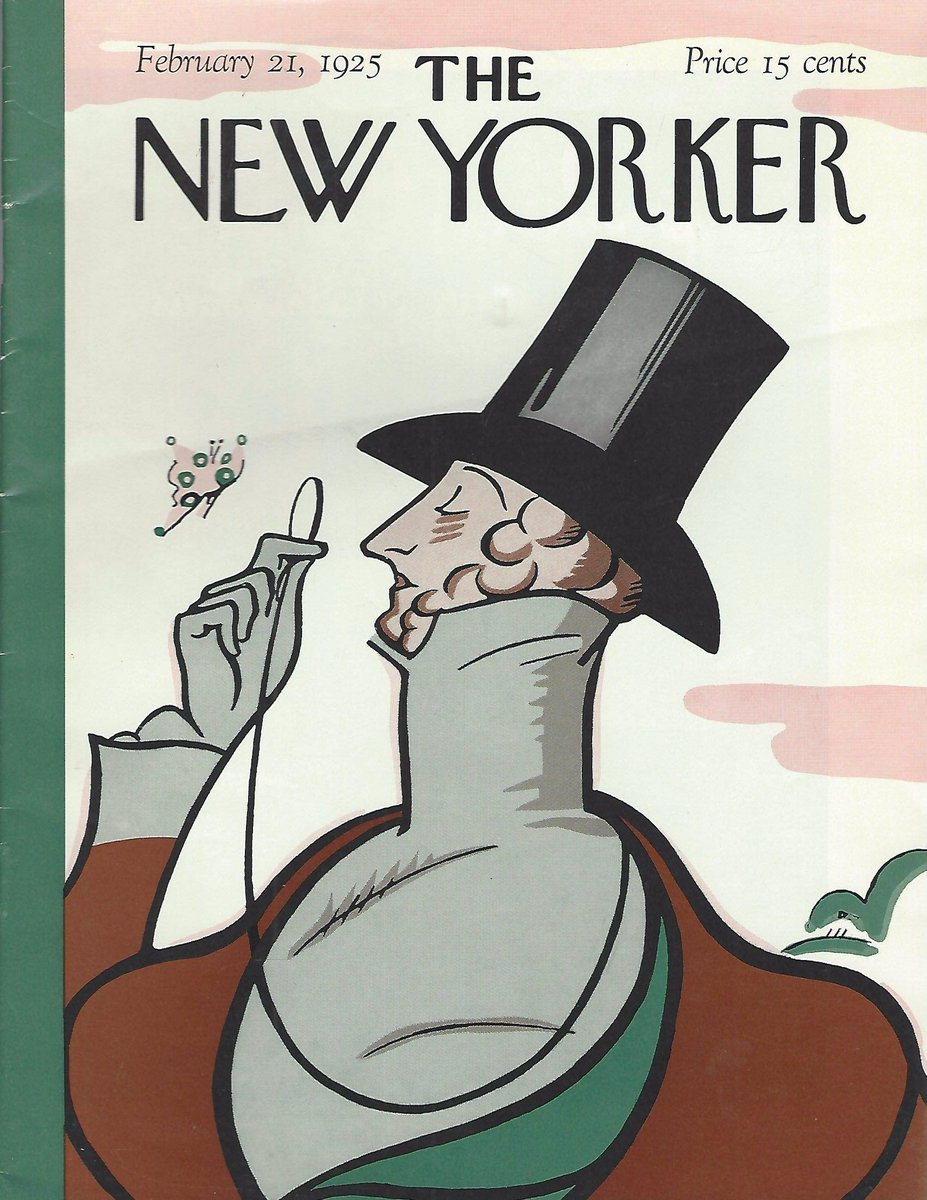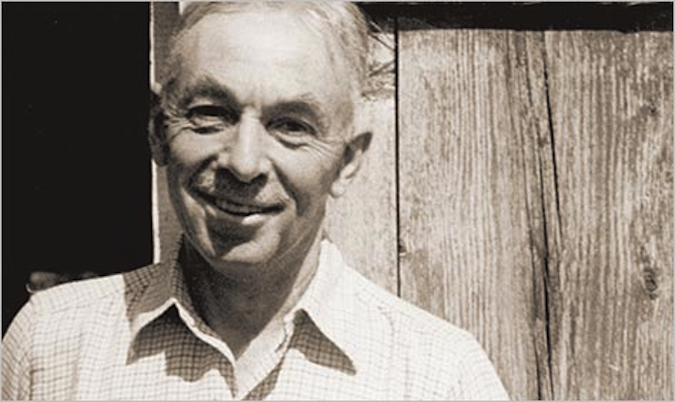E. B. White is one of the most beloved writers of all time.
He won the Newbery Medal for Charlotte& #39;s Web and the Pulitzer Prize for his essays.
What can we learn from his life and work?
Here are 9 lessons for writers from from the life and work of E. B. White:
He won the Newbery Medal for Charlotte& #39;s Web and the Pulitzer Prize for his essays.
What can we learn from his life and work?
Here are 9 lessons for writers from from the life and work of E. B. White:
1. Be yourself.
Pursuit of perfection will make your writing worse.
"This is the problem of writers who set out deliberately to garnish their prose. You lose whatever it is that makes you unique."
—E. B. White
Pursuit of perfection will make your writing worse.
"This is the problem of writers who set out deliberately to garnish their prose. You lose whatever it is that makes you unique."
—E. B. White
One way to be yourself:
Write in the first person: I, me, we, and us.
"I don’t want to meet “one”—he’s a boring guy."
—E. B. White
Write in the first person: I, me, we, and us.
"I don’t want to meet “one”—he’s a boring guy."
—E. B. White
2. Write for yourself.
E. B. White loved writing, but he hated being told what to write.
He loved writing for his college newspaper at Cornell, but he got a D in English.
Later he loved being a reporter, but he hated being told what to write.
E. B. White loved writing, but he hated being told what to write.
He loved writing for his college newspaper at Cornell, but he got a D in English.
Later he loved being a reporter, but he hated being told what to write.
"You are writing for yourself. Don’t try to visualize the great mass audience. There is no such audience—every reader is a different person."
—E. B. White
—E. B. White
"You are writing primarily to please yourself, and if you go about it with enjoyment you will also entertain the readers who are worth writing for."
—E. B. White
—E. B. White
3. Write for a specific person.
E. B. White had many nieces and nephews.
When his niece Janice Hart White asked him for a story, he started telling her about a little mouse named Stuart that he dreamt about on a train ride.
E. B. White had many nieces and nephews.
When his niece Janice Hart White asked him for a story, he started telling her about a little mouse named Stuart that he dreamt about on a train ride.
E. B. White never planned to be a children& #39;s author, but his niece liked the mouse story, so he submitted Stuart Little to publishers.
Despite many doubts (where did the mouse come from anyway?), the book became a bestseller.
That is how he started writing books for kids.
Despite many doubts (where did the mouse come from anyway?), the book became a bestseller.
That is how he started writing books for kids.
4. Expand your vocabulary.
As a child, E. B. White& #39;s dad told him to look up every word he didn& #39;t know in the dictionary.
This was a habit White kept with him his entire life.
As a child, E. B. White& #39;s dad told him to look up every word he didn& #39;t know in the dictionary.
This was a habit White kept with him his entire life.
5. Keep a journal.
As a kid, E. B. White kept a journal.
He liked the word "journal" because it sounded more writerly than "diary."
He wrote in that journal every day for twenty years.
That& #39;s a lot of writing practice.
As a kid, E. B. White kept a journal.
He liked the word "journal" because it sounded more writerly than "diary."
He wrote in that journal every day for twenty years.
That& #39;s a lot of writing practice.
6. Keep a day job.
E. B. White& #39;s children& #39;s books were bestsellers, but White made a living in magazines.
He began freelancing for the New Yorker in 1925 then joined the staff at $30/week.
When he retired in 1982, White had written 30,000 essays and won the Pulitzer Prize.
E. B. White& #39;s children& #39;s books were bestsellers, but White made a living in magazines.
He began freelancing for the New Yorker in 1925 then joined the staff at $30/week.
When he retired in 1982, White had written 30,000 essays and won the Pulitzer Prize.
7. Remove clutter.
From Elements of Style:
"Look for the clutter in your writing and prune it ruthlessly."
—Strunk & White
From Elements of Style:
"Look for the clutter in your writing and prune it ruthlessly."
—Strunk & White
"The secret of good writing is to strip every sentence to its cleanest components."
—Strunk & White
—Strunk & White
"Most first drafts can be cut by 50 percent without losing any information or losing the author’s voice."
—Strunk & White
—Strunk & White
8. Imitate the experts.
"If anyone asked me how I learned to write, I’d say I learned by reading the men and women who were doing the kind of writing I wanted to do and trying to figure out how they did it. But cultivate the best models."
—E. B. White
"If anyone asked me how I learned to write, I’d say I learned by reading the men and women who were doing the kind of writing I wanted to do and trying to figure out how they did it. But cultivate the best models."
—E. B. White
Here& #39;s a process for imitating other authors:
1. Pick writers you love.
2. Read their writing.
3. Analyze what works well.
4. Practice what they did well.
1. Pick writers you love.
2. Read their writing.
3. Analyze what works well.
4. Practice what they did well.
9. Write for a higher purpose.
One goal:
“The hope I see for the world...is to simplify life.”
—E. B. White
"All that I hope to say in books, all that I ever hope to say, is that I love the world. I guess you can find that in there, if you dig around."
—E. B. White
One goal:
“The hope I see for the world...is to simplify life.”
—E. B. White
"All that I hope to say in books, all that I ever hope to say, is that I love the world. I guess you can find that in there, if you dig around."
—E. B. White
Thank you E. B. White for all your writing wisdom!
If you liked this thread, follow me at @jareddees
I& #39;m going to share more writing lessons from some of my favorite authors in the future.
If you liked this thread, follow me at @jareddees
I& #39;m going to share more writing lessons from some of my favorite authors in the future.
E. B. White Writing Lessons Summary:
1. Be yourself
2. Write for yourself
3. Write for a specific person
4. Expand your vocabulary
5. Keep a journal
6. Keep a day job
7. Remove clutter
8. Imitate the experts
9. Write for a higher purpose
1. Be yourself
2. Write for yourself
3. Write for a specific person
4. Expand your vocabulary
5. Keep a journal
6. Keep a day job
7. Remove clutter
8. Imitate the experts
9. Write for a higher purpose

 Read on Twitter
Read on Twitter




